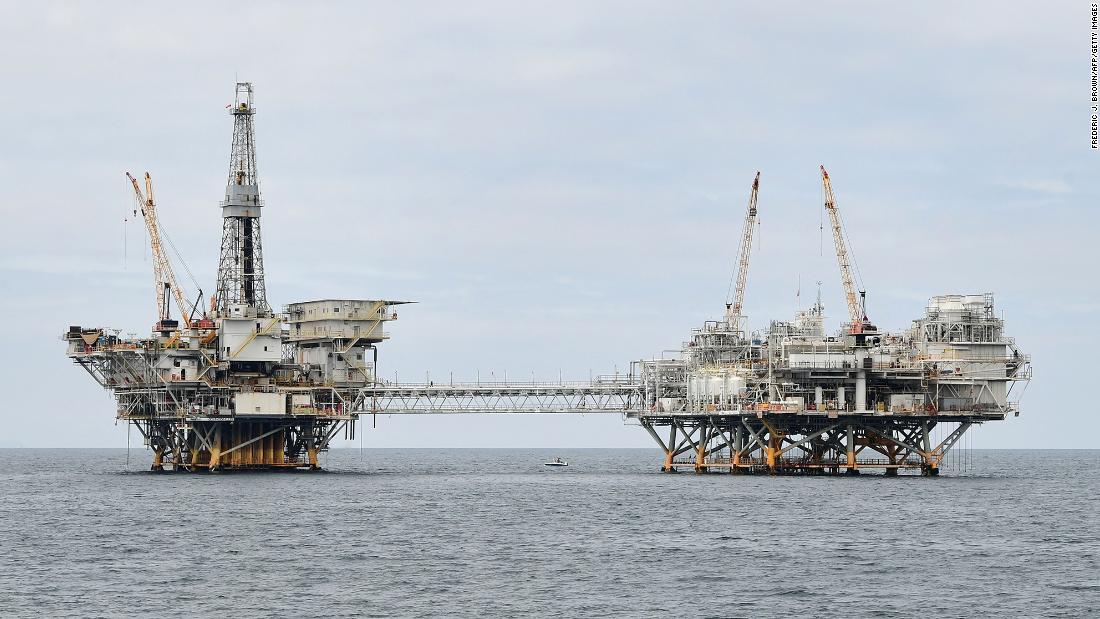Oil companies go against climate rules of Biden's plan 1:07
London (CNN Business) -
The shift to clean energy is leading the oil industry into decline.
But the world needs a much more ambitious plan to save the climate and achieve net zero emissions by 2050.
That's what the International Energy Agency (IEA) says, which in its global energy outlook, released Wednesday, states that more aggressive climate action is needed as world leaders prepare for the crucial COP26 summit, to be held in Glasgow in November.
"The hugely encouraging global clean energy push is colliding with the stubbornness of fossil fuels in our energy systems," CEO Fatih Birol said in a statement.
"Governments have to resolve this at COP26 by giving a clear and unequivocal signal that they are committed to rapidly expanding the clean and resilient technologies of the future."
More than 50 countries and the European Union have committed to meeting net zero emissions targets.
If they meet those commitments, the demand for fossil fuels will peak in 2025, but global CO2 emissions will only be reduced by 40% in 2050, a far cry from the goal of net zero emissions.
2500, the apocalyptic year caused by climate change 0:45
In that scenario, the world would continue to consume 75 million barrels of oil per day in 2050, only 25 million barrels per day less than today.
advertising
The energy sector has been strengthened in recent weeks by a sharp rise in prices.
Natural gas prices in Europe and Asia have skyrocketed, while the cost of coal in China reaches a record high.
That has helped drive oil prices to their highest level since 2014, as some energy providers turn to oil for generation.
What is COP26?
How This Key UN Conference Could Avert 'Catastrophe'
global climate
But the IEA report includes a warning to the fossil fuel industry.
Oil demand peaks in all the scenarios studied by the agency, and if countries meet their climate commitments, that moment will come in a few years.
What is needed
Right now, investment in clean energy projects and infrastructure is insufficient.
The IEA has said that development of new oilfield or coal mine projects must be stopped if the world wants to limit warming to 1.5 degrees Celsius.
"There is an imminent risk of further turmoil for global energy markets," Birol said.
"We are not investing enough to meet future energy needs, and uncertainties are setting the stage for a volatile period in the future," he added.
Birol said that to achieve net zero emissions, investment in clean energy must more than triple in the next decade.
About 70% of that spending should occur in developing economies, "where financing is scarce and capital is still up to seven times more expensive than in advanced economies."
"The road ahead is difficult and narrow, especially if investment remains less than necessary," the IEA said in its report.
However, he says he remains "hopeful" if government leaders get down to business next month.
The increased investment required will be carried out, to a large extent, by "private developers, consumers and financiers who respond to market signals and policies established by governments."
These players will need "an unmistakable signal from Glasgow," where world leaders will meet in November for international climate talks, the IEA stressed.
Before COP26, momentum had been created for stricter measures, such as putting a date on the end of the use of coal, the most carbon-intensive fuel.
But the talks have been complicated by the recent energy crisis, which is fueling fears that businesses will have to close and consumers will face high bills this winter.
Last month, China pledged not to build new coal power projects abroad.
However, in an attempt to ease its growing energy crisis, Beijing has recently ordered mines to increase production.
The IEA forecasts that demand for coal will decline by 10% in 2030, if countries meet their climate commitments.
To keep the warming at 1.5 degrees Celsius and avoid a climate catastrophe, the use should decrease by 55%.
Climate change Oil

